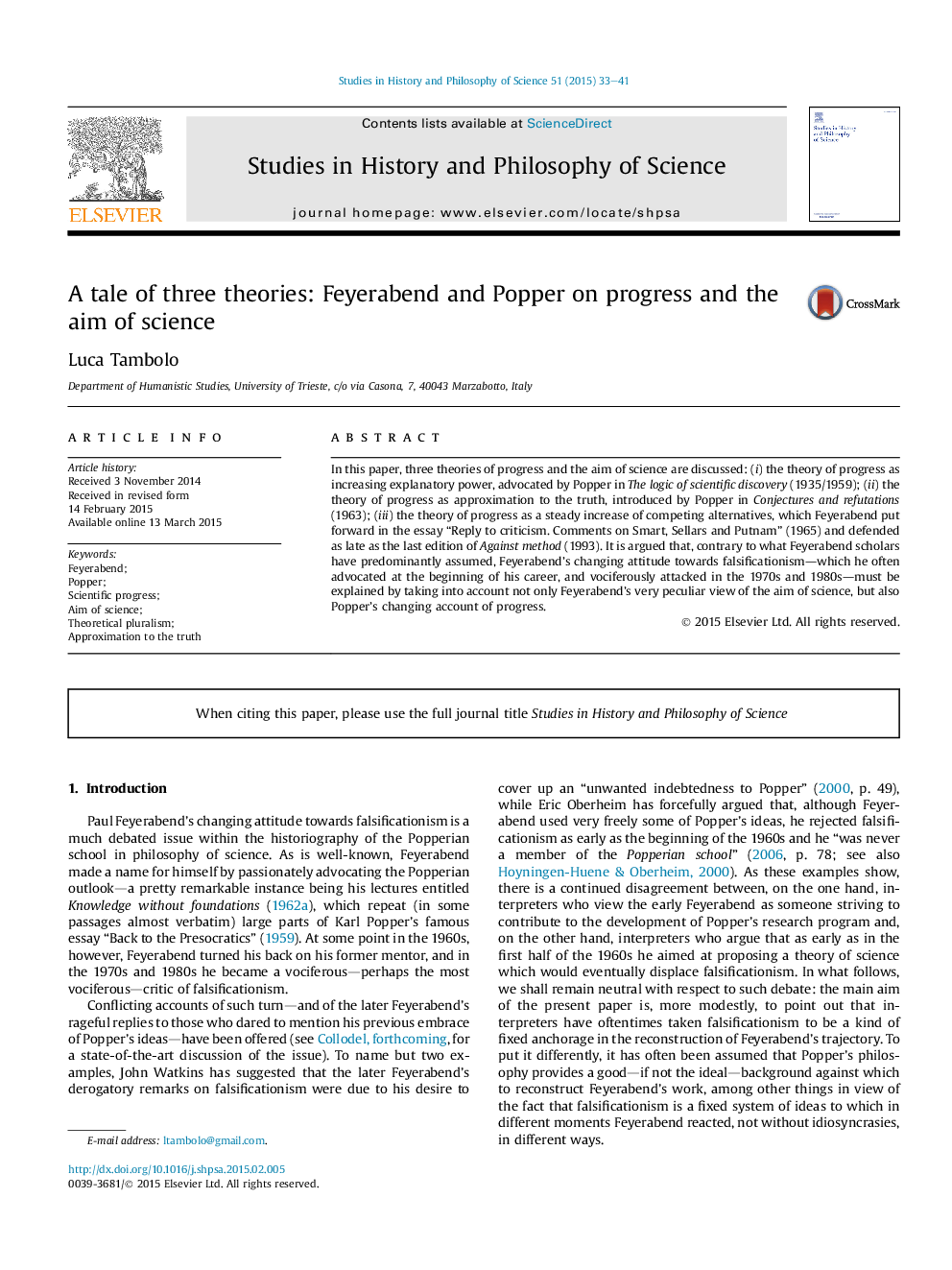| کد مقاله | کد نشریه | سال انتشار | مقاله انگلیسی | نسخه تمام متن |
|---|---|---|---|---|
| 1160480 | 1490331 | 2015 | 9 صفحه PDF | دانلود رایگان |
• Popper's theory of progress as increasing explanatory power (T1) is presented.
• Popper's theory of progress as increasing verisimilitude (T2) is discussed.
• Feyerabend's theory of progress as an increase of alternatives (T3) is analyzed.
• T3, which is incompatible with T2, is argued to be compatible with T1.
• T2 is argued to be an underestimated factor in Feyerabend's disavowal of falsificationism.
In this paper, three theories of progress and the aim of science are discussed: (i) the theory of progress as increasing explanatory power, advocated by Popper in The logic of scientific discovery (1935/1959); (ii) the theory of progress as approximation to the truth, introduced by Popper in Conjectures and refutations (1963); (iii) the theory of progress as a steady increase of competing alternatives, which Feyerabend put forward in the essay “Reply to criticism. Comments on Smart, Sellars and Putnam” (1965) and defended as late as the last edition of Against method (1993). It is argued that, contrary to what Feyerabend scholars have predominantly assumed, Feyerabend's changing attitude towards falsificationism—which he often advocated at the beginning of his career, and vociferously attacked in the 1970s and 1980s—must be explained by taking into account not only Feyerabend's very peculiar view of the aim of science, but also Popper's changing account of progress.
Journal: Studies in History and Philosophy of Science Part A - Volume 51, June 2015, Pages 33–41
